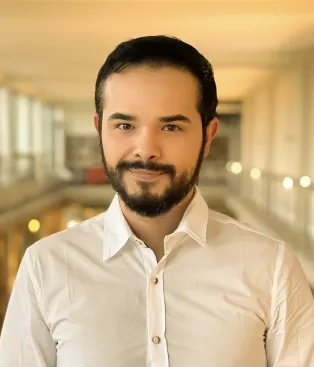Marcos Sanches, postdoctoral fellow
Background
Marcos came from Brazil, where he completed a PhD in Science at the Department of Structural and Functional Biology at the Federal University of São Paulo. In his PhD research Marcos worked with the role of the Annexin A1 protein in the activation and regulation of the NLRP3 inflammasome in macrophages and neutrophils, as well as in Candida spp. infection. Besides working with molecular mechanism of inflammation and lipid metabolism, Marcos have been working with vaginal microenvironment and gynecological pathophysiology. Also, Marcos worked as a Lecturer in Biochemistry and Embryology in a Medical School in Brazil. He enjoyed very much working with lipid metabolism and inflammation, as well as its consequences in health and diseases. Thus, Marcos decided that he wanted to continue with metabolic interactions studies, but learn more about different “omics” and biochemical approaches integrated to biology systems. This is the reason he joined the Kaldis lab. Here Marcos want to focus on the metabolic and inflammation crosstalk between tissues and how this affects the development and outcome of liver diseases and Type 2 Diabetes.
"From all of this, you can see that I am keen to collaborate with many of you!"
Techniques
I am an early-career scientist with a focus in lipid metabolism (lipidomics) and the effects in health and diseases processes, molecular mechanism of inflammation, inflammasome NLRP3, fungal infections, gynecological microbiology and pathophysiology. Besides that, I am person that appreciate life and its beauty, love to know new cultures and learn more about art, languages, religion, medicine and science. “Knowledge has power. It controls access to opportunities and advancement (Peter Drucker)”.


